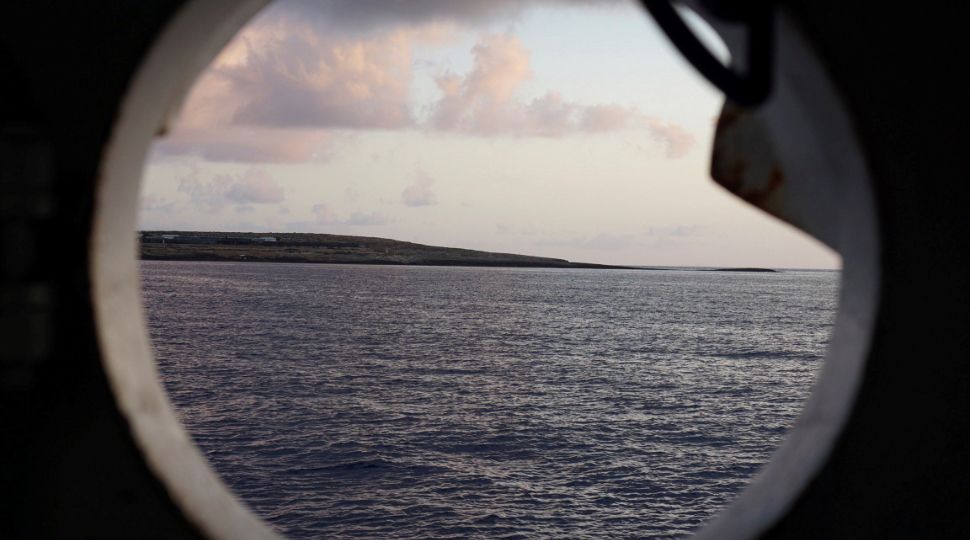Tensions in the Eastern Mediterranean: an Urgent Challenge for the EU

The eastern part of the Mediterranean is the region comprising Cyprus, Greece, Turkey, Syria, Lebanon, Israel, Palestine, Jordan, Egypt and Libya. In recent years, those states have been struggling with similar problems, including instability, a result of regional conflicts and weaknesses of some countries (primarily Syria and Libya), maritime delimitation disputes, competition for the extraction of energy resources and their transit to Europe, and interference by external powers increasingly competing for influence in the region. Some of the problems and tensions associated with them constitute a particular challenge for the EU.
Cyprus and Turkey
The division of Cyprus into two entities—the Republic of Cyprus (ROC), which enjoys international recognition and is a member of the EU, and the “Turkish Republic of Northern Cyprus (TRNC)”, which is recognised only by Turkey—is an example of a historical dispute that has escalated under new conditions. This has been evident since the end of 2011, when the first gas fields were found in the Cyprus exclusive economic zone. The discovery deepened political differences on the island. While the ROC sought to exploit the fields, Turkey, which supported TRNC, argued that drilling should start after either unification of the island or guaranteeing a share to the Turkish Cypriots.
This came to a head in February 2018, when the Turkish navy stopped and forced the retreat of a drilling ship belonging to Italian company Eni, which received a drilling licence from the ROC. Moreover, in May this year, Turkey started drilling in territories considered by its authorities to be part of Turkey’s continental shelf. Two Turkish drilling ships are currently operating there, under protection of the Turkish navy. Some of the works are carried out on the basis of TRPC-issued licences and in areas considered by the ROC to be within its exclusive economic zone. In this way, Turkey puts pressure on the ROC to return to unification talks, at the same time strengthening the TRNC’s negotiating position. Turkey also uses the fait accompli method to attempt to force a favourable settlement of border disputes (Turkey is not a signatory to the 1982 Convention on the Law of the Sea, and is seeking a delimitation agreement with Greece and a united Cyprus through negotiations). These activities were the basis of the EU’s sanctions imposed on Turkey in mid-July. Turkey responded by unilaterally suspending the 2016 readmission agreement. This was a signal of Turkey's readiness to abandon the migration agreement if the EU continues to ignore its interests in the region.
Russia
The situation is even more complicated by increased Russian activity in the region. Its authorities fear that the export of Eastern Mediterranean resources to external markets will eventually threaten its position as a key gas supplier to Europe. This, in turn, would limit the effectiveness of Russia’s instruments of political and economic influence on the EU. That is why the Russia is consistently trying to get involved in energy projects in the region. Since 2012, the country has been seeking participation in the exploitation of Israeli fields. In February 2013, Gazprom concluded an agreement with Israel, under which it obtained the right to purchase and export LNG from the Leviathan and Dalit fields for 20 years. In addition, Rosneft signed an agreement with Libya in 2017, which resulted in its engagement in the oil industry and acquired a 30% stake in the Egyptian Zhor field. Moreover, it concluded a contract with the Lebanese authorities, under which it got involved in the modernisation of the country’s oil infrastructure. This resulted in another agreement, signed at the end of January, which gave Rosneft the right to manage the oil terminal in Lebanese Tripoli for 20 years. Russian companies have also started looking for natural resources off the Syrian coast.
While these agreements and investments are often of limited importance or—as in the case of Israel—remain unfulfilled, they serve the goals of Russian foreign policy. First, they support the achievement of the basic aim of ensuring profits if the share of Russian gas in EU imports decreases. They also root Russia in the region, giving it an opportunity to influence local players, often (such as Israel and Lebanon with their delimitation dispute) in conflict with each other. In addition, they strengthen Russia’s image as a country experienced in the exploitation and transport of energy resources, and thus as an attractive partner in such ventures.
New Alliances and the Intensification of Rivalrie
In January, Egypt, Israel, Greece, Cyprus, Jordan, Italy and the Palestinian Authority inaugurated the Eastern Mediterranean Gas Forum (EGF), with the aim of making the region an energy hub. This is to be achieved by such initiatives as the East Med pipeline, intended for the transit of resources from Israel via Cyprus and Greece to Italy. To strengthen their cooperation, Israel, Greece and Cyprus inaugurated a tripartite mechanism that received U.S. support. A joint declaration signed by these countries in March contains provisions on cooperation for energy independence and security, as well as for “defence against malign external influences”. This was interpreted as aimed at Turkey and Russia. A particular expression of U.S. support is the Eastern Mediterranean Security and Energy Partnership Act, brought to Congress in April. It assumes, among other things, lifting the arms embargo for ROC—introduced in the late 1980s to support the island’s unification—or increased military assistance to Greece. Another signal of U.S. support for regional projects was the participation of energy secretary Rick Perry at the EGF summit in July.
Turkish policymakers are critical of these initiatives. Not only do they not include Turkey in regional energy projects, they also undermine its aspirations to play the role of a bridge in the transit of resources (Turkey argues that transit through its territory would be the cheapest and easiest way). This also led Turkey, which is in disputes with most of the EGF members, to become involved in the Libyan conflict, arming the Tripoli government. Turkey hopes that the government’s victory in the civil war will guarantee for itself a foothold in the Eastern Mediterranean, and increased influence on the situation in the region. This also prompts the country to strengthen relations with Russia, which is concerned with the creation of the EGF and U.S. support for the initiative. As a result, Turkey does not oppose the strengthening of the Russian navy in the Mediterranean, despite the fact that both countries have interests in Libya and Syria that are difficult to reconcile. A signal of Russia’s willingness to tighten its relations with Turkey was a statement made by Russian minister of energy Alexander Novak on 26 July, in which he declared his readiness to undertake joint drilling activities on the Mediterranean coast. Such declarations are part of Russia’s attempts to reconcile Turkey and Syria, and may signal a desire to create a counter-alliance with the participation of Iran and Iraq.
Conclusions
The situation in the Eastern Mediterranean is becoming a multidimensional challenge for the EU. First, increasing competition in the region threatens the security of EU countries. In the short term, this may result in the intensification of delimitation disputes, and in the longer term, especially in the event of two opposite blocks forming, to proxy wars. Second, attempts by Russia to increase its share in Eastern Mediterranean resources may weaken European diversification plans. Third, tensions with Turkey may hamper cooperation in migration.
Currently, the EU countries are also risking a conflict of interest with Turkey. They antagonise this state, increasing its willingness to cooperate with Russia and thus contributing to deepening polarisation in the region. De-escalating tension in the Eastern Mediterranean is in the EU’s interests. This may be achieved by comprehensive analysis of the activities and interests of the most important players in the region, which would help to develop a formula of cooperation favourable to all parties.




